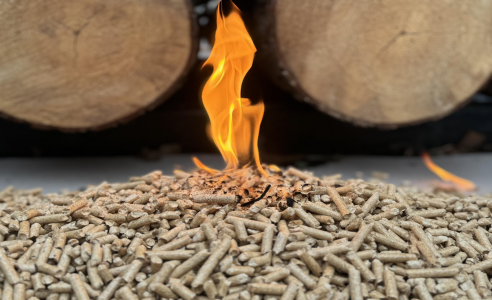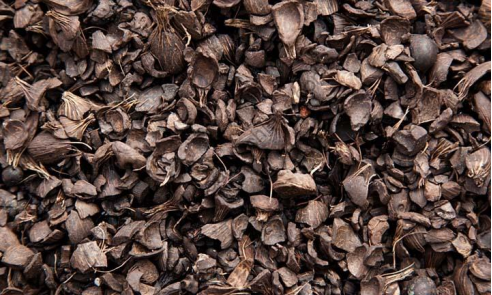Global Biomass Energy Policy Review: Which Countries Are Promoting Pellet Fuels to Replace Fossil Energy
As the world transitions toward renewable energy, biomass pellets have emerged as a sustainable alternative to fossil fuels. Made from organic materials like wood waste, agricultural residues, and energy crops, these pellets reduce greenhouse gas emissions while supporting circular economies. Central to this shift is the biomass pellet machine, a critical technology for producing standardized, high-energy-density pellets. This article explores global policies driving pellet fuel adoption and highlights key nations leading this transformation.

1. European Union: Pioneering Renewable Energy Targets
The EU has been a frontrunner in promoting biomass energy through binding regulations. The Renewable Energy Directive (RED II) mandates that 32% of the bloc’s energy must come from renewables by 2030, with biomass pellets playing a pivotal role. Countries like Germany, Sweden, and Denmark have integrated pellet heating systems into district heating networks, supported by subsidies for pellet boiler installations.
Notably, the EU’s focus on sustainability certification (e.g., ENplus®) ensures pellet quality and traceability, creating demand for advanced biomass pellet machines that meet strict efficiency and emission standards. Manufacturers like ABC Machinery (exporting to Portugal and other EU nations) have capitalized on this demand, offering ISO-certified pellet mills tailored to European regulations.

2. United States: Incentivizing Biomass Utilization
The U.S. has adopted a mix of federal and state-level policies to boost pellet production. The Renewable Fuel Standard (RFS) and tax credits for bioenergy projects encourage utilities and industries to co-fire pellets with coal. Southern states like North Carolina and Georgia, rich in forestry resources, have become hubs for pellet exports to Europe and Asia.
Additionally, the Biomass Crop Assistance Program (BCAP) supports farmers growing energy crops for pellet feedstock. This policy framework has spurred investments in high-capacity biomass pellet machines, with companies like Huantai Kangxi Machinery supplying equipment to U.S.-based pellet plants.

3. Asia: Emerging Markets and Government Backing
Japan and South Korea: Both nations rely heavily on pellet imports to meet renewable energy targets. Japan’s Feed-in Tariff (FIT) program guarantees fixed prices for biomass-derived electricity, while South Korea’s Renewable Portfolio Standard (RPS) mandates utilities to source 10% of energy from renewables by 2024. These policies have driven demand for imported pellets and localized pellet production equipment.
China: As the world's largest emitter, China is aggressively expanding its biomass sector. The 14th Five-Year Plan for Bioenergy Development aims to increase pellet production capacity to 50 million tons annually by 2025. Provincial subsidies for pellet heating systems and tax breaks for manufacturers of biomass pellet machines (e.g., Shandong Bolida Machinery) are accelerating domestic adoption.

4. Other Regions: Growing Momentum
Southeast Asia: Countries like Malaysia and Thailand are leveraging agricultural residues (e.g., palm kernel shells) for pellet production. Malaysia’s National Biomass Strategy targets 20% renewable energy by 2025, with pellet mills gaining traction in rural areas.
Latin America: Brazil and Chile use pellets to reduce reliance on imported fossil fuels. Chile’s Energy 2050 Roadmap emphasizes biomass for industrial heat, creating opportunities for pellet machine suppliers.
Spotlight: Shandong Bolida Machinery Co., Ltd.
As global demand for biomass pellet machines grows, manufacturers like Shandong Bolida Machinery stand out. Established in 2017 and headquartered in Jinan, China, the company specializes in R&D, production, and global distribution of biomass equipment, including pellet mills, crushers, and drying systems.

Key Strengths:
Certifications: CE, ISO 9001, and SGS certifications ensure compliance with international standards.
Global Reach: Exports to over 100 countries, including Europe, North America, and Southeast Asia.
Turnkey Solutions: Offers customized pellet production lines, from raw material processing to packaging.
Innovation: Invests in IoT-enabled systems for remote monitoring and predictive maintenance.
With a 60-acre production base and 65+ patents, Bolida exemplifies China’s role in advancing biomass technology, aligning with global decarbonization goals.
Conclusion
From the EU’s regulatory frameworks to Asia’s booming markets, biomass pellets are reshaping energy systems worldwide. Governments are prioritizing policies that incentivize pellet production and adoption, directly fueling demand for efficient biomass pellet machines. Companies like Shandong Bolida Machinery are pivotal in this transition, providing the technology needed to turn organic waste into clean energy. As nations intensify climate commitments, the biomass pellet industry is poised for exponential growth-a win for both the planet and innovative manufacturers.